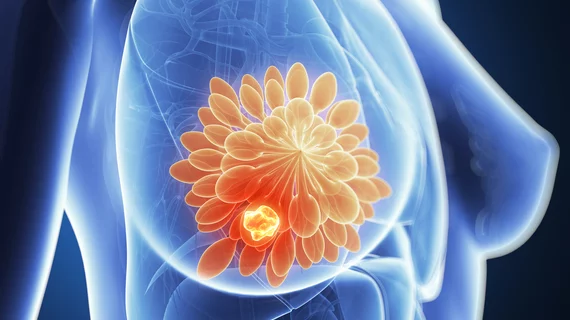AI reduces radiologists’ mammography screen-reading workload by 44%
Artificial intelligence was able to reduce radiologists’ mammography screen-reading workload by 44%, according the results of a randomized control trial, published Wednesday in The Lancet Oncology.
Swedish imaging experts believe their analysis is the first to move beyond retrospective to explore the use of breast AI in such fashion. The study involved more than 80,000 women randomly allocated to either a control group that underwent standard double-reading by radiologists or AI-supported assessment.
The technology was able to detect about 20% more cancers when compared to standard screening, without impacting false positives. Meanwhile, the number of screen-readings with AI support was 46,345 compared to 83,231 in the standard group.
“The study was conducted on a single site in a Swedish setting,” lead author Kristina Lång, PhD, a researcher and associate professor in diagnostic radiology at Lund University in Sweden, said in an announcement. “We need to see whether these promising results hold up under other conditions, for example with other radiologists or other AI algorithms. There may be other ways to use AI in mammography screening, but these should preferably also need to be investigated in a prospective setting,” she cautioned.
Lång and colleagues noted that there are 1 million women in Sweden screened for breast cancer each year, with two radiologists reading each exam. However, like other parts of the world, the Scandinavian nation is facing ongoing shortages of specialists, which can put screening at risk. On average, a radiologist reads about 50 breast imaging exams per hour, they estimated. With the help of AI, it took up about five months less of radiologists’ time to read 40,000 scans in the AI group, the authors noted.
The team next plans to investigate cancer types that were detected with and without AI support. They’ll look to deduce an interval cancer rate among the Mammography Screening with Artificial Intelligence (MASAI) trial’s 100,000 participants, after they have reached two years of follow up.
Read the rest of the stud in the Lancet here.

